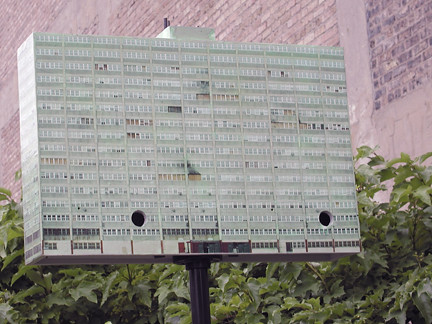
Sounds like a lot, until you look at the actual out-of-pocket amount for each homeowner.
Mayor's budget seeks $108 million property-tax hike
Mayor Richard Daley proposed a whopping $293 million increase in taxes, fees and fines today, including a 15 percent jump in Chicago's property-tax levy, believed to be the biggest in the city's history.
"I know that many Chicagoans are struggling to make ends meet and facing economic uncertainty, which made developing this budget all the more difficult," the mayor said.
But, he added, "Do we maintain city services and make the investments needed to keep Chicago moving forward, or do we cut services, make substantial layoffs and risk falling behind? I believe we have only one choice: We must keep Chicago moving forward."
[From Daley says city must ask taxpayers for more]
but in actual dollar amounts, the increase in property tax is not much:
The owner of a home with a market value of $225,000 would pay about $100 more a year under the property-tax increase, according to city budget officials.No mention, of course, of reducing corruption and sweet-heart jobs....
The typical homeowner would also pay an additional $45 next year in water and sewer fees. The water fee would rise by nearly $44 million in 2008, and the sewer fee by almost $21 million, under a plan that would build in further rate increases for the following three years.
Daley also proposed increases in a long list of other taxes and fees on phone users; people who buy beer, wine and liquor; and those who lease cars, office equipment and other items. Fines for certain parking offenses would rise, developers of some larger real estate developments would have to pay a new fee of 15 cents a square foot to build their projects and owners of big sport-utility vehicles would pay $120 for city stickers, up from $90.
A new 10-cent tax would be imposed on every bottle of water sold in the city.
Little in the way of new programming is planned for the coming year. Among initiatives will be the hiring of 50 new police officers, deployment of 100 more police surveillance cameras citywide and increasing the number of households in the blue cart recycling program from the current 80,000 to 211,000.
